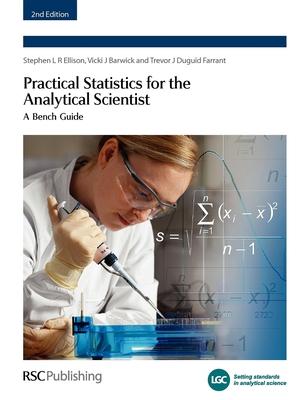Analytical chemists must use a range of statistical tools in their treatment of experimental data to obtain reliable results. Practical Statistics for the Analytical Scientist is a manual designed to help them negotiate the daunting specialist terminology and symbols. Prepared in conjunction with the Department of Trade and Industry's Valid Analytical Measurement (VAM) programme, this volume covers the basic statistics needed in the laboratory. It describes the statistical procedures that are most likely to be required including summary and descriptive statistics, calibration, outlier testing, analysis of variance and basic quality control procedures. To improve understanding, many examples provide the user with material for consolidation and practice. The fully worked answers are given both to check the correct application of the procedures and to provide a template for future problems. Practical Statistics for the Analytical Scientist will be welcomed by practising analytical chemists as an important reference for day to day statistics in analytical chemistry.

Practical Statistics for the Analytical Scientist: A Bench Guide
Analytical chemists must use a range of statistical tools in their treatment of experimental data to obtain reliable results. Practical Statistics for the Analytical Scientist is a manual designed to help them negotiate the daunting specialist terminology and symbols. Prepared in conjunction with the Department of Trade and Industry's Valid Analytical Measurement (VAM) programme, this volume covers the basic statistics needed in the laboratory. It describes the statistical procedures that are most likely to be required including summary and descriptive statistics, calibration, outlier testing, analysis of variance and basic quality control procedures. To improve understanding, many examples provide the user with material for consolidation and practice. The fully worked answers are given both to check the correct application of the procedures and to provide a template for future problems. Practical Statistics for the Analytical Scientist will be welcomed by practising analytical chemists as an important reference for day to day statistics in analytical chemistry.